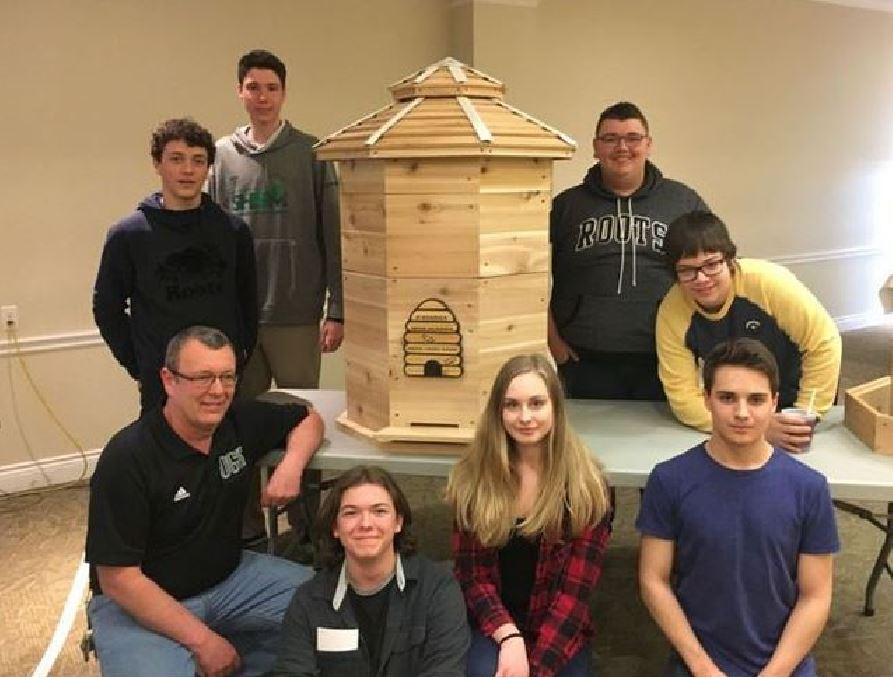Keeping Bees Warm in Winter

On International Mother Earth Day, we are reminded that the Earth and its ecosystems provide us with life and sustenance. We are dependent on even the smallest of creatures such as butterflies, wasps, and flies – and particularly bees, to pollinate the crops which provide us with a third of all our food, and a world without them would be devastating. Bees also play an important role in Goldcorp’s reclamation process, as they are able to pollinate and improve our replanting efforts.
Honey Bees were introduced on Porcupine‘s Coniaurum reclamation site in 2008 to promote pollination and plant development. The landscape flourished and healthy bee colonies and honey production increased. However, the long winter months in Northern Ontario have had a significant impact on the decline of the local bee populations.
To address this issue, four local schools participated in a Goldcorp-funded competition and were challenged to create a beehive that can withstand long winters and increase bee survival rates. The project also supported the curriculum which aims to provide students with the opportunity to design and create a product to provide services to various technological areas or industries, while developing an awareness of environmental and social issues. Student teams from Roland Michener Secondary School, École Secondaire Catholique Thériault, Timmins High & Vocational School and O'Gorman High School set about designing and building insulated hives and were guided by René Bertrand, who runs the Timmins Ecological Beekeeping Association (TEBA).
The schools presented their finished products on March 31, 2017. O'Gorman High School received $250 for being the most well-prepared, while École Thériault walked away with $250 for best use of materials. More prizes will follow as TEBA will continue to monitor the hives throughout the summer, and a hive with the most honey will receive $500, the hive that most quickly reaches a certain number of bees will receive $500, and $1,500 will be awarded for the hive whose bees survive the winter.
Bertrand was impressed with the student’s research and designs, noting that one of them could be the future hive for Northern Ontario. “If 60% of bees survived the winter in Timmins, I wouldn't need to buy more from the South, and risk bringing disease to the North,” said Bertrand.
Porcupine’s Sustainability Manager, Bryan Neeley, said, “The project with local high school students will increase awareness of the bee population and what we're doing with bees, but also to develop and try to find that next great mind to deal with the low survival rates of bees in Timmins over the winter.”
With bee populations declining around the world, the project has wider implications. Bertrand would like to see more invested in winter-survival research. “It's not a big deal right now because agriculture is not big enough in this region at this point, but if money was spent learning how to keep our bees alive in the wintertime, it would make a big difference.”
